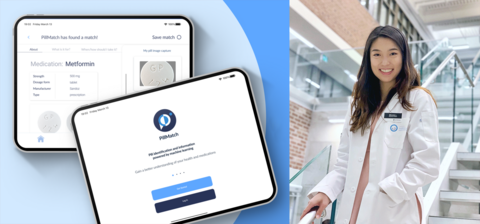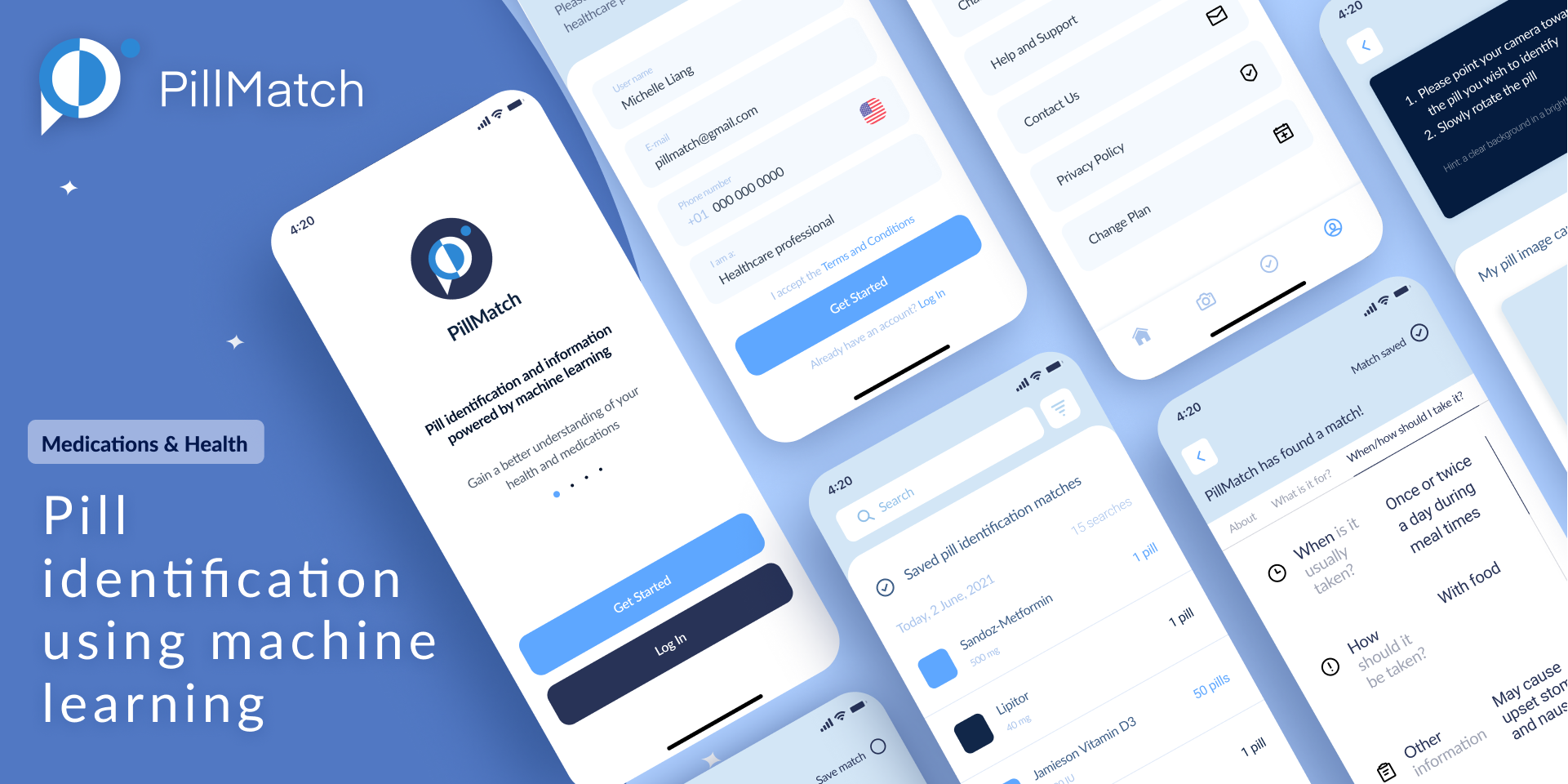
Michelle Liang’s PillMatch proposes using machine learning to make pill identification more efficient

Michelle’s business concept is the recipient of the 2021 Pharmasave Business Case Competition award.
A patient enters your pharmacy. He found an old medication bottle rattling with tiny, look-alike, round pills. He can’t remember what they’re for and wants your help – what are these pills? How long will it take to identify them all? Searching for ‘white’ and ‘round’ pills in a database produces 5,253 matches.
The identification of mystery pills is a challenge faced not just but pharmacies, but also by hospitals, poison control centers, law enforcement units and other institutions worldwide. U.S. poison centres receive one million calls a year that are categorized as pill identification requests.
It’s a multi-billion-dollar issue when you factor in the cost of the wasted medication, harm from medication misuse and misidentification, and employee resources spent on identification.
Michelle Liang is tackling this issue with PillMatch, her business concept which won the 2021 Pharmasave Business Case Competition. The award is embedded in Entrepreneurship in Pharmacy, a business-focused course for third year pharmacy students. Students develop and pitch business concepts, a panel of judges from various sectors of pharmacy determine which student has the most compelling pitch.
“The idea for PillMatch came from experiences on my co-op work terms and part-time jobs,” says Michelle, now a fourth-year pharmacy student. “I was constantly trying to identify mystery pills. I remember once spending all day with my team scrolling through images on an online database to identify a pill a patient brought. If PillMatch was built then, I could’ve identified the pill in five seconds!”
For PillMatch, Michelle is developing both a user interface and experience workflow, accessed through an app, and the underlying machine learning technology that will power the software. With the tool, a user can submit a photo of an unknown pill and the system will automatically filter the photo against the known universal database. It then returns an answer – that is, a potential identification of the pill – along with a confidence score within a few seconds.
Michelle is taking a concept already used by popular apps for the identification of plants or birds and applying it in the health-care space.
“The goal is to replace the very time intensive, inaccurate, and costly process used by pharmacists and others today,” Michelle says. “Right now, we don’t have perfect methods for identifying mystery pills. We consult databases or web searches on open forums but doing so is inefficient and often leads to inconclusive results.”

“Applications of this technology could include blister pack checking, quickly pulling up important information about the pill – such as storage, potential side effects and toxicities, indications –, multiple pill identification with interactions checking, and identifying damaged or split pills.”
PillMatch proposes using the latest technology to tackle a prevalent issue that affects many sectors of society. This timeliness and adaptability made it a stand-out business concept to competition judges.
“The judges were impressed and appreciated the pure focus of this group on solving a real-world problem – it is interesting no one has thought of this before,” says Jaspreet Chager, one of the judges and Senior Manager of Pharmacy Innovation for Pharmasave East. “Michelle’s dedication and passion for the project and pharmacy was evident throughout her extremely thorough presentation. She had explored various facets of the business model and did her due diligence to ensure this was a viable opportunity. In part, our selection of Michelle’s group was impacted by impression our of Michelle herself – she’s focused, committed and we had faith she could make this project a reality.”
Pharmasave has generously sponsored the Pitch Competition since 2010. The competition encourages pharmacy students to think beyond disciplinary borders and to develop innovative ways to improve the health-care experience for both patients and practitioners.
Michelle has plans to take PillMatch from concept to reality. She’s received feedback from the competition judges and also mentorship from Professor Dean Pacey who teaches the third-year entrepreneurship course.
“I think it could be an exceptionally valuable tool for patients as well in the future,” she says.